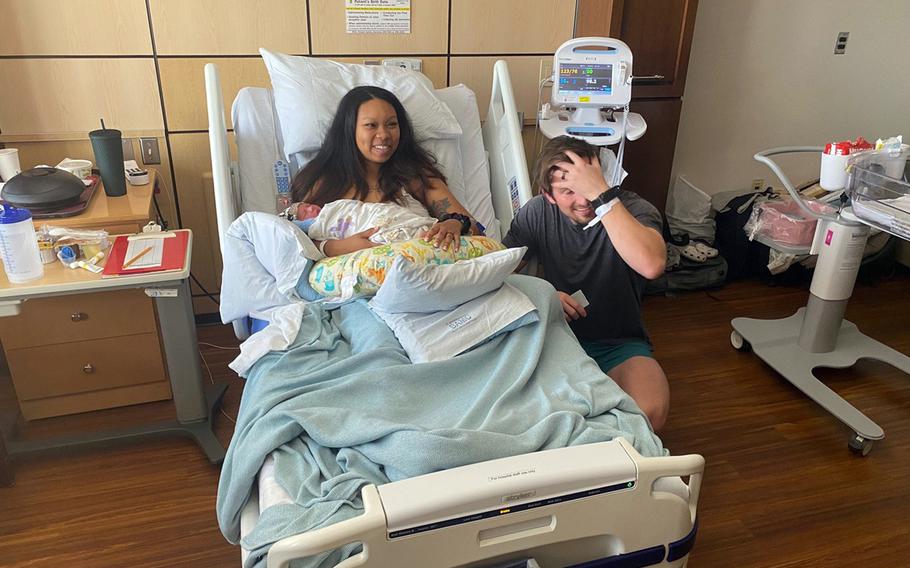
Air Force Master Sgt. Chelsey Barnes and her husband, Tech. Sgt. Sydney Barnes, pose with their newborn son at Brooke Army Medical Center, Fort Sam Houston, Texas, Jan. 1, 2023. (Robert Whetstone/Department of Defense)
Military parents of newborns are entitled up to four times more parental leave, depending on their roles, under the recently authorized National Defense Authorization Act.
Birth parents can now claim a maximum 18 weeks of nonchargeable leave, six more weeks than their previous benefit; non-birth parents are entitled to 12 weeks, up from three.
The new policy also allows service members to take parental leave in seven-day increments, if permitted by their commander.
“Commanders are encouraged to approve requests for incremental periods of parental leave,” the policy states. “If the unit commander does not approve taking incremental parental leave, they must allow the member to take the full 12 weeks of parental leave in one continuous period.”
President Joe Biden signed the fiscal 2023 NDAA, which funds the Department of Defense and other defense-related activities, on Dec. 23. The act allocates $816.7 billion to the DOD.
For parental leave purposes, the act took effect Dec. 27; military parents are eligible for the expanded benefit if their children were born on or after that date, according to a news release Wednesday from the Office of the Secretary of Defense. Parents have one year from the birth of their child to exercise the expanded benefit.
Individual service branches have yet to issue their own specific guidance on parental leave in accordance with the new policy, which Chief Master Sgt. of the Air Force JoAnne Bass acknowledged Monday on her Facebook page.
“We’ve been pretty transparent in that we are waiting on guidance from OSD to drop,” she said in response to a comment on her post Monday. “Once that does, we are ready to push the service guidance. I understand the frustration … as we’ve been pushing for this for awhile.”
Birth parents, who previously received six weeks of convalescent leave, are entitled to 12 more for 18 total, according to the DOD release. Their partners, the non-birth parents, are eligible for 12 weeks of non-chargeable leave following the birth or adoption of their child, or for long-term foster care. No birth parent is designated in the event of an adoption or surrogate birth, for example.
Unit commanders are allowed some leeway in approving leave, according to the policy.
“Unit commanders must balance the needs of the unit with the needs of the member to maximize opportunity to use parental leave,” it states.